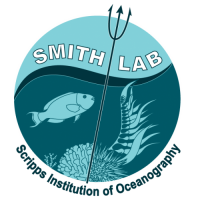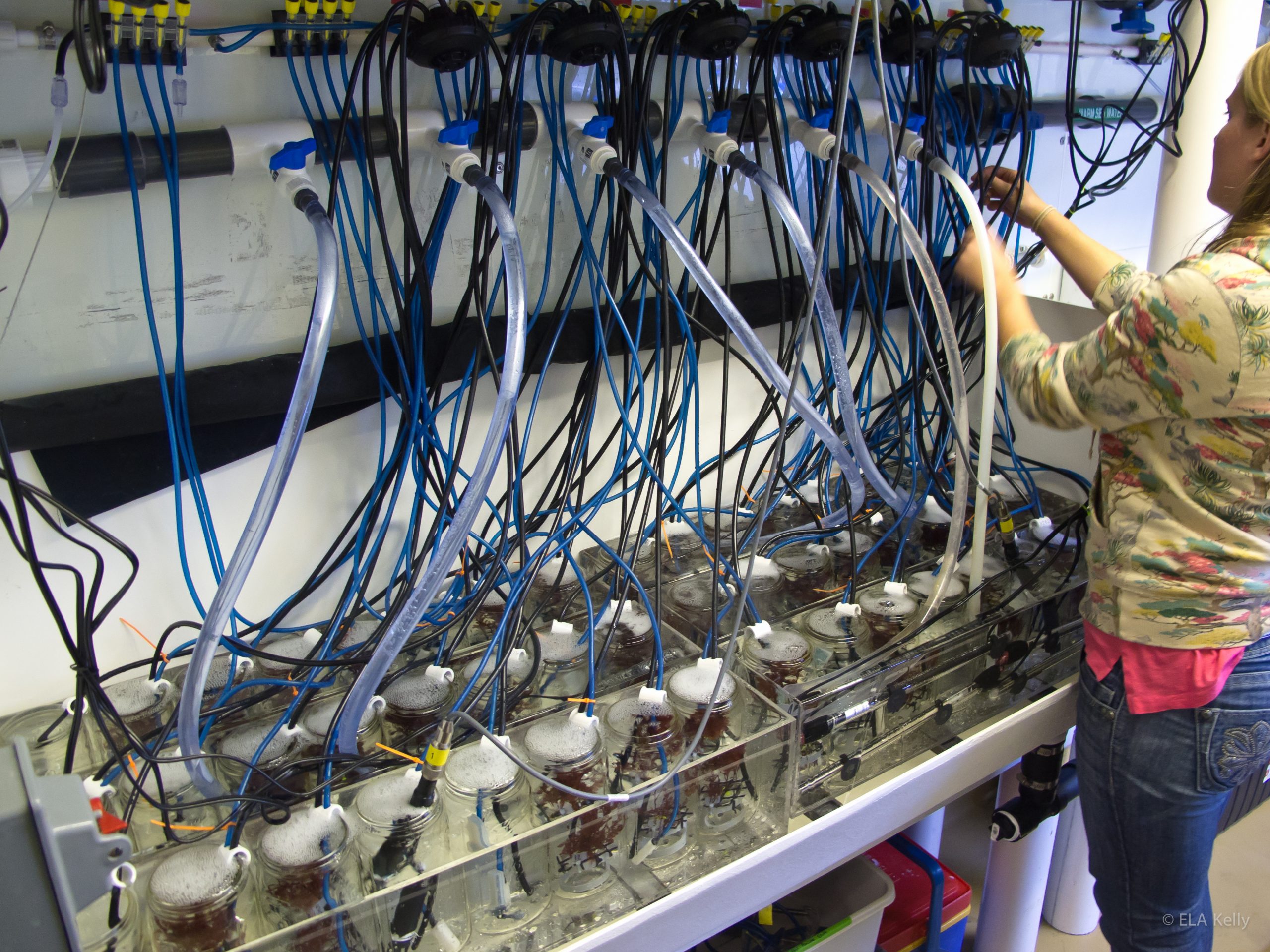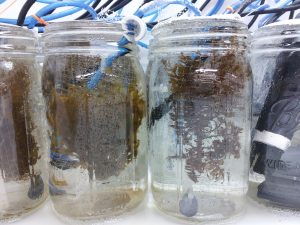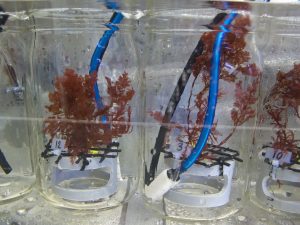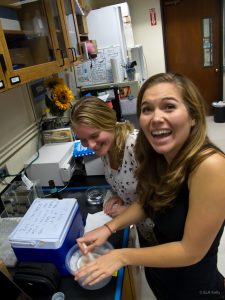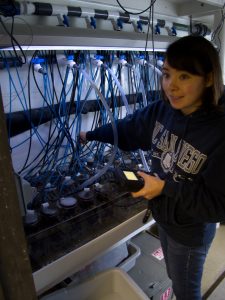A new paper, written by Susan Kram and co-authors, was recently accepted for publication in the ICES Journal of Marine Science themed article set on Ocean Acidification. The paper, “Variable responses of temperate calcified and fleshy macroalgae to elevated pCO2 and warming,” describes the responses of six different locally abundant San Diego seaweeds to future ocean acidification and warming conditions.
The results of the paper provide additional support for the hypothesis that the responses of marine seaweeds to increased pCO2 will be species specific but in general more negative for calcifying versus fleshy individuals. We provide data on a small subset of the diverse assemblage of macroalgae common on temperate shores that contribute to the growing body of information on the likely future effects of ocean acidification. More information is still needed on the responses of species to more gradual and thus more realistic increases in pCO2 to allow for acclimatization or adaptation. Macroalgae are ecosystem engineers, providing habitat, refugia, and energy as a food source to countless organisms in coastal habitats. Understanding how climate change will affect them will give researchers a better idea of how coastal ecosystems may change in the coming centuries.
Funding was provided by California Sea Grant, NOAA, and the CSU Council for Ocean Affairs, Science and Technology (COAST). The results produced from this research was a collective effort of many individuals. The authors would particularly like to thank Samantha Clements, Molly Gleason, Elena Perez, Alex Neu and many more for their help collecting specimens, monitoring experiments as well as launching and breakdown experiments.

